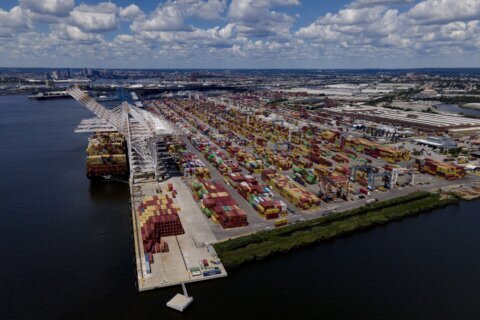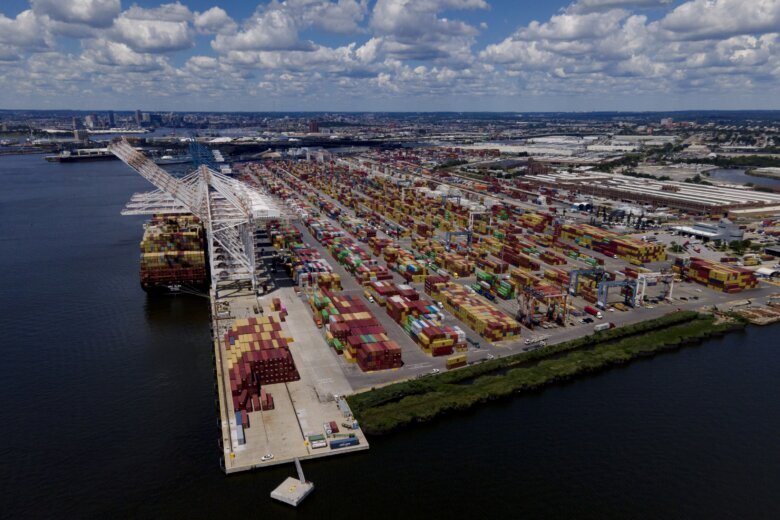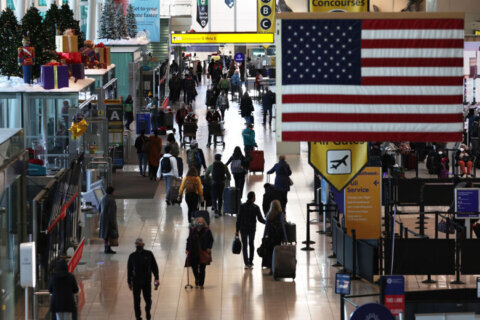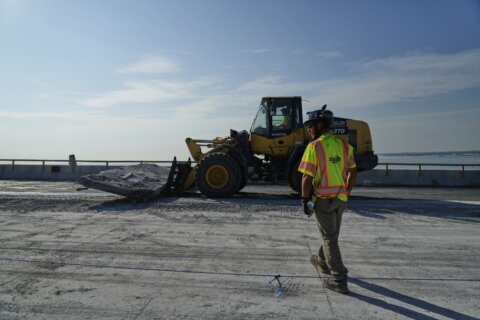
Cargo ships can’t enter or exit the Port of Baltimore following the collapse of the Francis Scott Key Bridge, but that doesn’t mean the port is closed.
Trucks are still picking up cargo and taking it to its final destination, but that only applies to cargo already at the port. Eventually those routes will stop, so that means looming headaches for shipping companies and retail businesses as they switch to their backup plans.
“I think [in the] initial days, you won’t see too much of a disruption,” said Jonathan Gold, vice president for supply chain and customs policy with the National Retail Federation. “Obviously, the longer that the closure goes with the Port of Baltimore for vessel traffic, the more impact that could have.”
Businesses are working to get incoming cargo rerouted elsewhere.
“They’re working with their ocean carrier partners on trying to determine where cargo will be diverted to,” Gold said. “So looking at other East Coast ports, including New York, New Jersey, Wilmington, Philadelphia, Norfolk, up and down the coast. And we’ve had conversations with those ports as well to ensure that they have the capacity to take on the additional volumes that will result from cargo ships being diverted to those ports.”
The supply chain disruption will not rival the disturbance caused by the COVID pandemic, which caused failures throughout the manufacturing process — from factories to shipping and every point in between.
“But it is a disruption that, again, retailers and other shippers are having to deal with in their supply chain as they’re already dealing with issues,” Gold said, citing problems with shipping through the Panama Canal, Red Sea and elsewhere. “So this is just one other example of the complexity of the global supply chain and the need for ongoing attention toward resilience that a lot of interest members are putting a lot of time and effort into right now.”
And items will still find their way to the mid-Atlantic region, whether it’s by truck, train or other means.
However, “those are going to be additional costs they’re going to have to deal with to get those cargoes into that market,” he said.
Baltimore is the ninth-busiest port in the nation for international cargo, but it leads U.S. ports in “roll on, roll off” cargo. That means goods with wheels, composed largely of automobiles but including construction and agricultural equipment.
During a briefing at the bridge collapse scene, U.S. Rep. David Trone said state and federal officials estimated the port’s closure would cost the economy at least $15 million per day.
The Associated Press contributed to this report.
Get breaking news and daily headlines delivered to your email inbox by signing up here.
© 2024 WTOP. All Rights Reserved. This website is not intended for users located within the European Economic Area.









